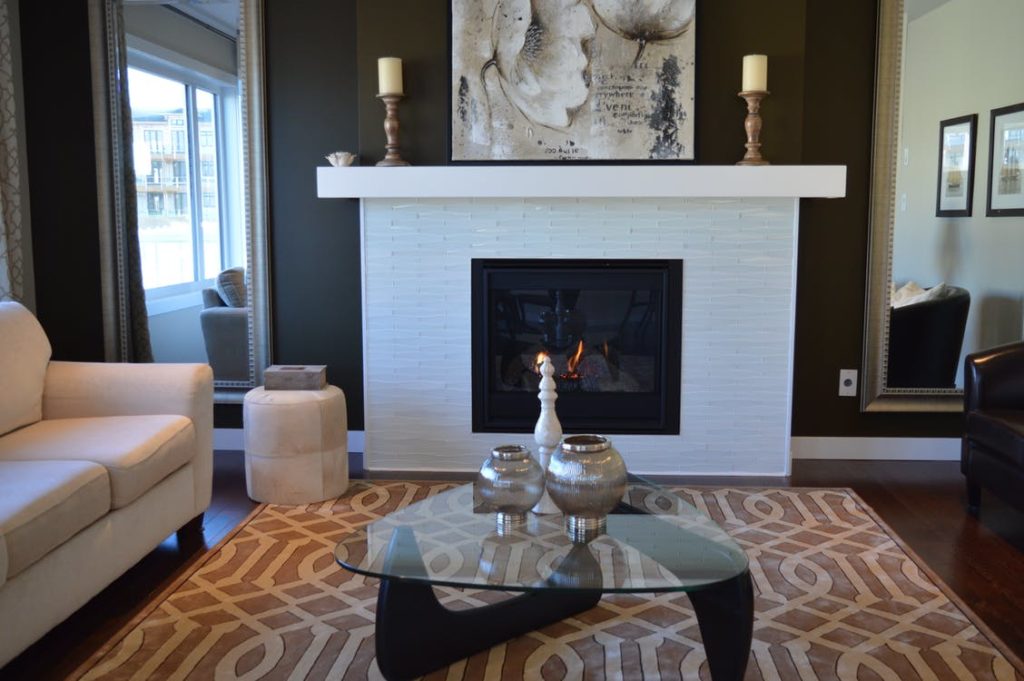Disclosure: This post may contain affiliate links, meaning we get a commission if you decide to make a purchase through our links, at no cost to you. Please read our disclosure for more info.
When most people think about achieving the perfect night’s sleep, their minds immediately jump to premium sheets, plush pillows, and the quest for that ideal mattress. But here’s something sleep experts are finally acknowledging: the quality of your energy-efficient front doors influences your bedroom comfort almost as much as your bedding choices. While you’re busy comparing thread counts and debating duvet fills, your insulated exterior front doors might be silently undermining every comfort upgrade you’ve invested in by allowing temperature fluctuations, noise pollution, and drafts to disrupt your sleep sanctuary. Think of it like investing in a luxury sound system but forgetting to soundproof the room: you’ve got the right equipment, but the environment keeps sabotaging your results.
The connection between entry doors and bedroom comfort isn’t immediately obvious until you start connecting the dots between whole-home climate control and sleep quality. Modern entry doors transform home design by serving as the primary barrier between exterior chaos and interior serenity, affecting everything from temperature stability to acoustic comfort. Meanwhile, bedroom temperature optimization experts emphasize that maintaining consistent coolness throughout the night requires proper home insulation starting at your main entry point.
In This Post:
- The Temperature Tango: How Doors Affect Your Sleep Climate
- The Sound Barrier: Acoustic Comfort Starts at Your Threshold
- Energy Efficiency That Translates to Bedding Comfort
- The Psychology of Home Security and Sleep Quality
- Humidity Control: The Moisture Connection
- The Whole-Home Comfort Ecosystem
- Seasonal Transitions Made Seamless
- Making the Connection: Investment Priorities for Better Sleep
- The Comfort Ripple Effect
The Temperature Tango: How Doors Affect Your Sleep Climate
Sleep scientists agree that bedroom temperature significantly impacts sleep quality, with most experts recommending keeping your sleep space between 60 and 67 degrees Fahrenheit for optimal rest. But here’s what makes this tricky: maintaining that perfect temperature becomes nearly impossible when your front door acts like a thermal highway, constantly exchanging inside air with outside temperatures. It’s like trying to keep ice cream frozen in a cooler with holes in it. Sure, the ice is there, but physics won’t cooperate with your intentions.
Modern insulated doors create thermal barriers that work alongside your HVAC system rather than fighting against it. During summer months, poorly insulated entry doors allow heat to seep into your home throughout the day, warming up your entire living space including your bedroom. By evening when you’re ready for sleep, your air conditioning system has been working overtime just to combat the heat gain from inadequate door insulation. Winter presents the opposite problem: cold air infiltration means your heating system runs constantly, creating dry air that irritates sinuses and throats, disrupting sleep quality even when you’re technically warm enough under your comforter.
Quality entry doors with proper weather stripping and thermal cores maintain temperature consistency that ripples throughout your home. When your front door stops acting like a temperature traitor, your HVAC system can maintain stable bedroom temperatures without the constant cycling that creates noise, drafts, and temperature swings. This consistency matters more than most people realize. Even small temperature fluctuations during the night can shift you between sleep stages, preventing the deep restorative sleep your body needs to feel genuinely rested.
The Sound Barrier: Acoustic Comfort Starts at Your Threshold
Street noise ranks among the top sleep disruptors, yet most people don’t consider how much sound enters through their front door. A hollow-core door or one with gaps around the edges essentially invites every passing car, barking dog, and neighborhood conversation directly into your bedroom. Solid-core doors with proper seals create the first line of defense in your home’s acoustic barrier, dramatically reducing the decibel levels that penetrate your living space.
This matters especially in urban and suburban settings where nighttime noise remains constant. Every sound that makes it past your front door potentially travels through your home to your bedroom, creating a cumulative effect that undermines sleep quality even when individual noises don’t fully wake you. These micro-disruptions prevent deep sleep cycles, leaving you feeling unrested despite spending adequate time in bed. It’s like sleeping on thousand-thread-count sheets in a room with a dripping faucet: the quality of one element can’t compensate for the disruption from another.
The difference between a standard builder-grade door and a quality insulated entry door in terms of sound reduction can be dramatic. Homeowners who upgrade often report noticing an immediate improvement in how peaceful their homes feel, particularly in bedrooms facing the street side of the house. This acoustic improvement complements other bedroom comfort investments like blackout curtains and white noise machines, creating a truly restful environment rather than just masking problems with additional solutions.
Energy Efficiency That Translates to Bedding Comfort
Here’s an often-overlooked connection: the energy efficiency of your front door directly impacts how you experience your bedding. When doors allow drafts and temperature inconsistencies, you compensate by adjusting your bedding throughout the night. Too warm under your comforter because the house overheated during the day? You’ll kick covers off, then feel too cold an hour later when temperatures drop. This constant adjustment disrupts sleep continuity more significantly than most people realize.
Proper door insulation creates stable indoor temperatures that let you select bedding appropriate for the season and stick with it all night. Your lightweight summer sheets actually work as intended when your home maintains cool temperatures consistently. Your cozy winter duvet provides perfect warmth when drafts aren’t creating cold spots throughout your bedroom. This predictable comfort level allows your body to maintain optimal temperature regulation throughout the night, supporting natural sleep cycles rather than constantly triggering wake responses to temperature changes.
The financial aspect matters too. Energy-efficient doors reduce heating and cooling costs, putting more money in your budget for those premium sheets you’ve been eyeing. When your front door stops wasting energy, you can justify investing in higher-quality bedding, pillows, and mattress toppers without guilt. It’s all part of creating a comprehensive sleep environment where every element supports restful nights rather than some components working against others.
The Psychology of Home Security and Sleep Quality
Quality entry doors provide enhanced security features that might seem unrelated to sleep comfort but actually play a significant psychological role. Feeling safe in your home influences how easily you fall asleep and how deeply you rest throughout the night. Anxiety about home security can manifest as hypervigilance during sleep, where your brain remains partially alert for potential threats rather than fully relaxing into restorative sleep stages.
Modern entry doors with advanced locking mechanisms, reinforced frames, and impact-resistant construction provide tangible security improvements that translate to intangible psychological benefits. When you trust your front door to keep your home secure, you can release the unconscious vigilance that undermines sleep quality. This might seem like a small factor, but for many people, especially those living alone or in areas with higher crime rates, the difference between a flimsy door and a solid barrier significantly impacts sleep anxiety levels.
This psychological comfort complements physical bedroom comfort elements like supportive pillows and pressure-relieving mattresses. You can have the most comfortable bed in the world, but if you’re unconsciously worried about home security, your body won’t fully relax into the kind of deep sleep that leaves you feeling refreshed. Addressing security concerns at the entry point creates a foundation of safety that supports all your other comfort investments.
Humidity Control: The Moisture Connection
Bedroom humidity significantly affects comfort, yet few people consider how their front door influences indoor moisture levels. Doors with poor seals allow humid outdoor air to infiltrate during summer or let dry heated air escape during winter, creating humidity imbalances that affect how comfortable your bedding feels against your skin. Have you ever noticed how sheets feel clammy and uncomfortable on humid nights? Or how winter air makes your skin feel dry and itchy despite your soft bedding? These issues often trace back to inadequate home sealing at entry points.
Quality doors with proper weather stripping maintain appropriate humidity levels by preventing moisture exchange with outdoor air. This matters for bedding comfort because fabric interacts with humidity dramatically. Cotton sheets in high humidity feel sticky and uncomfortable. That same bedding in properly regulated humidity feels crisp and inviting. Your down comforter performs optimally in controlled humidity conditions, maintaining loft and warmth without feeling heavy or damp.
Beyond comfort, humidity control prevents the growth of dust mites and mold that can trigger allergies and asthma, particularly problematic during sleep when you’re spending extended time in close contact with bedding. Proper door sealing works alongside dehumidifiers or humidifiers to maintain the ideal bedroom humidity range of 30 to 50 percent, supporting both comfort and health. This creates an environment where your premium bedding investment pays off with consistently comfortable sleep rather than sporadic good nights mixed with uncomfortable ones.
The Whole-Home Comfort Ecosystem
Understanding bedroom comfort requires thinking holistically about how different home elements interact rather than viewing them in isolation. Your front door isn’t competing with your bedding for comfort importance; instead, these elements work together as part of a comprehensive system. Upgrading one without addressing the other creates an imbalanced approach that delivers disappointing results despite significant investment.
Consider this progression: you install a new insulated entry door that dramatically improves your home’s temperature stability and noise reduction. Suddenly, your existing bedding performs better because your bedroom maintains consistent comfort conditions. You’re sleeping better, which means you’re more energized to tackle other home improvement projects. Eventually, you upgrade your bedding to complement your improved sleep environment, creating synergistic effects where each improvement amplifies the benefits of others.
This systems-thinking approach to home comfort explains why some people invest thousands in premium mattresses and luxury bedding yet still struggle with sleep issues, while others achieve consistently restful sleep with more modest bedding in well-sealed, properly maintained homes. The environment surrounding your sleep matters as much as the direct contact surfaces. A $200 sheet set in a properly insulated, quiet, temperature-stable bedroom often delivers better sleep than $500 sheets in a home with poor thermal and acoustic barriers.
Seasonal Transitions Made Seamless
Anyone who’s lived through dramatic seasonal changes knows the struggle of adjusting bedding and sleep conditions as temperatures shift. Spring and fall particularly create challenges as daytime warmth battles with nighttime chill, making it difficult to select appropriate bedding without waking up either too hot or too cold at some point during the night. Quality entry doors with superior insulation help stabilize indoor temperatures despite outdoor fluctuations, smoothing these seasonal transitions significantly.
When your home maintains more consistent internal temperatures regardless of outside conditions, you can switch bedding based on actual indoor climate rather than constantly reacting to outdoor weather. This means fewer middle-of-the-night bedding adjustments, less time spent debating whether to put the heavy duvet away or pull it back out, and generally more predictable sleep comfort throughout the year. It’s like having climate control that actually controls climate rather than just chasing temperature targets that keep moving.
This stability also extends the useful season for transitional bedding options like lightweight quilts and medium-weight comforters. Instead of rapidly swinging between summer sheets and winter duvets with barely any comfortable middle ground, you can enjoy those pleasant in-between options for longer periods. This not only improves comfort but also makes better use of your bedding investments since you’re not constantly rotating between seasonal extremes.
Making the Connection: Investment Priorities for Better Sleep
When budgeting for home comfort improvements, most people prioritize visible, tactile elements like bedding, furniture, and decor while overlooking infrastructure components that actually enable those comfort elements to perform optimally. A strategic approach recognizes that addressing foundational issues like entry door quality creates a platform for other investments to succeed rather than setting up a scenario where quality elements fight against poor conditions.
This doesn’t mean delaying bedding upgrades until every home infrastructure element achieves perfection. Instead, it suggests thinking about comfort investments in layers, addressing major barriers to comfort before fine-tuning the details. If your front door is clearly compromised, with visible gaps, drafts, or poor insulation, addressing that issue first might deliver more sleep quality improvement than upgrading from decent sheets to luxury ones. Once basic environmental stability exists, refining comfort with premium bedding creates the genuinely restful sleep environment you’re seeking.
The good news is that modern entry doors represent long-term investments that continue delivering benefits for decades with minimal maintenance, while bedding requires regular replacement regardless of quality. Addressing door issues first creates lasting infrastructure that supports multiple bedding upgrades over the years, whereas upgrading bedding first means fighting against poor environmental conditions until you eventually address the underlying issues anyway.
The Comfort Ripple Effect
Better sleep creates positive ripple effects throughout life, from improved mood and productivity to better health outcomes and enhanced relationships. When you understand that your front door influences sleep quality by affecting temperature, noise, humidity, and security, you can make informed decisions about home improvements that truly impact daily life rather than just creating visual appeal. This perspective shift from cosmetic to functional improvements often delivers more satisfaction per dollar spent while creating genuine quality-of-life improvements.
Your bedroom should be a sanctuary where all elements work harmoniously to support restorative sleep. From the sheets touching your skin to the door protecting your home’s internal environment, each component plays its role in creating conditions where your body can fully relax, recover, and prepare for the next day. Sometimes the most important comfort upgrade isn’t the one you sleep on but the one that creates the stable, peaceful environment that lets your body actually benefit from that premium bedding you’ve invested in.




